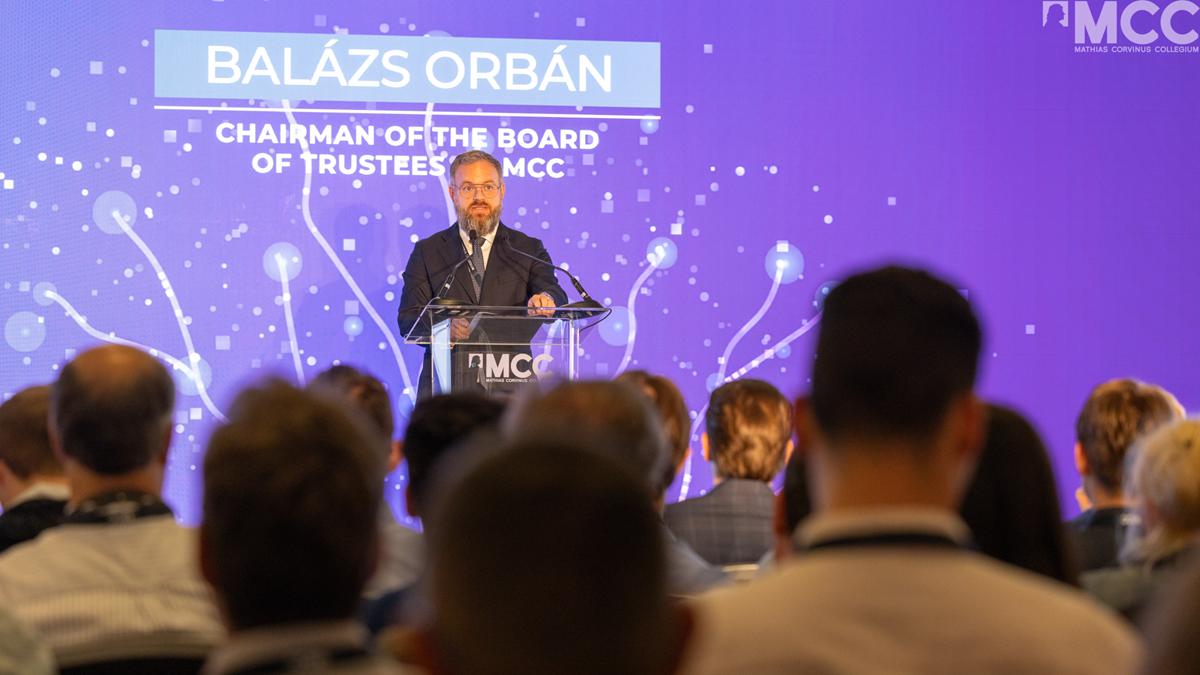PM’s political director: Vital to protect sovereignty amid tech boom

It is vital to protect sovereignty against technology and supranational powers, Balázs Orbán, the Prime Minister’s political director and chairman of the board of trustees of the Matthias Corvinus Collegium (MCC), said in his speech opening MCC’s international conference on the nexus of technology and society in Budapest.
He said it was essential to strike a balance between demonstrating responsibility in the face of technological advancements and keeping pace with them so as not to be left behind.
The political director said democracy was the linchpin of freedom and development, adding that the EU was “weak in the areas of democracy and innovation” and noting that eight of the world’s twenty most advanced tech bubs are in China, while six are in the United States. The EU has only one, he said. “In the absence of development, there’s stagnation,” he declared.
Orbán slammed over-regulation and EU innovation funding being “used for war and keeping a country outside the EU alive”.
Meanwhile, he noted that Hungary spends 2 percent of its GDP on higher education, putting it at the forefront of Europe, while the country spent almost 100 billion forints (EUR 248.1m) on the development of more than thirty vocational training colleges. As a high-tech manufacturing base, Hungary is also in Europe’s top ranks, he insisted.
Underlining the importance of a connectivity-based strategy, he noted that Hungary was now a meeting point for advanced Western and Eastern technologies.
He also emphasised the significance of diversifying energy supply, adding that the expansion of the Paks nuclear power station would contribute towards this goal. Solar panel capacity, he added, was “breaking records”.
Orbán talked up the innovation-friendly regulatory and economic environment and also noted that state R and D spending has risen from 1 percent of GDP to 1.4 percent, 2.5 times than 15 years ago.
read also:
Breaking! EUR 1 billion high-speed airport rail and new cargo aviation hub for Budapest
Tripling gas bills? Analysts debunk Orbán’s dramatic claims







